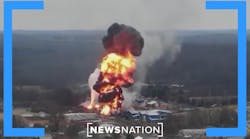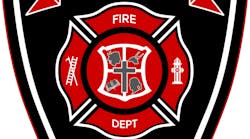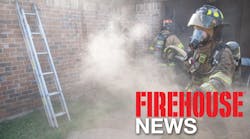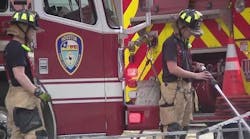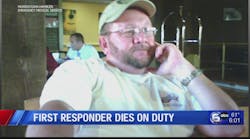May 13--EDEN -- Kirby darted through the grass, keen on the scent.
Rounding a corner, the black labrador ran behind the house and sniffed the air -- someone was close, and not just his owner, Craig Orum, who was following close behind.
A few seconds later, Kirby had his paws up against a truck, barking at the window.
Orum's wife sat up from her hiding place. Kirby found her, just as he would find her if she had been trapped under rubble and unable to call for help.
Orum and his wife keep Kirby at their Eden home, though they don't own him. Kirby is technically the property of the Federal Emergency Management Administration, so the agency can deploy him to the scene of a catastrophe, like the aftermath of an earthquake or hurricane, to search for survivors.
Mexico's version of FEMA will be in the Salt Lake City area for three days this week to see how Americans handle saving people after a disaster.
Orum plans to be on hand with Kirby for the training.
Kirby's keen nose picks up the scent of living people without relying on the scent on a piece of clothing. And, when on the job, he will bark only when he's as close as he can possibly get to the source of the smell. Orum also trained the dog to follow voice commands and hand gestures if he needs Kirby to head in a certain direction or return to him.
As part of his training, Kirby can also confidently run up ladders and walk across an unstable surface.
Orum brushes away the notion that searching for people depresses the dogs, a criticism he has heard about the practice. The dogs want to be out helping and rescuing people, he said.
And if the dogs start to feel down from not finding anyone, their handlers will stage a practice search with a volunteer to lift their spirits.
Orum heard about the search and rescue dogs through his work at the Salt Lake City Fire Department.
Most of the handlers are firefighters, men and women already trained in helping people in dangerous situations.
Orum applied and got a dog, who didn't work out in the end because he was not sociable enough for the job and was ultimately trained instead as a police dog.
Soon after, Orum got Kirby.
Most of the rescue dogs come from private kennels that breed and train the canines to meet FEMA standards, said Lee Culley, canine search specialist and canine coordinator for the Utah Task Force-One.
Others, like Culley's own German shepherd, come from a rescue shelter like the National Search Dog Foundation and are trained to become rescuers, she said.
Once the dogs are trained and certified, FEMA covers the dog's costs, such as food.
For instance, FEMA paid for a hip replacement for Kirby last year. Orum pointed out that it was more cost effective for FEMA to heal Kirby than to buy and train another dog.
Only months after the surgery, Kirby was back to his old self and passed a training exam, Orum said.
Kirby has yet to be deployed to any disasters. Other dogs have gone out around the state to help out in searches for a missing person, though Kirby was not part of those assignments.
In the meantime, he's a member of the Orum family.
The Orums plan to adopt Kirby when FEMA eventually retires him from the search and rescue business in a few years. They adore him, though the children sometimes complain about how hard his tail hits them when it's wagging.
Copyright 2012 - Standard-Examiner, Ogden, Utah
